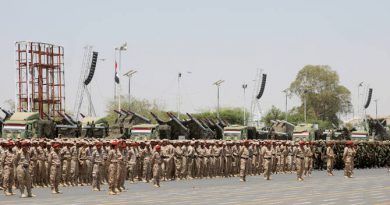Iranian workers’ anger on the eve of International Workers’ Day is piling up!
by Hassan Mahmoudi
Privatization in Iran is synonymous to corruption and the turnover of capital to a small but very corrupt minority…
Iran has sold nearly $ 1.4 trillion oil over the past 42 years. But the Iranian regime brought upon Iranian workers more poverty and misery. The inflation rate in Iran is above 65% and there is no prospect for lower prices and inflation rates. The workers’ earnings and subsequently their food basket is shrinking more and more.
Iranian workers have the lowest wages and the shortest life expectancy and the worst working conditions in industrial workshops, or are getting buried under piles of soil in the mines. They only receive hollow promises by government officials.
Iranian workers are celebrating International Workers’ Day at a time when the Coronavirus death toll is estimated to be more than 265,000, according to the main opposition National Council of Resistance of Iran (NCRI), and Iran has the highest death toll in the world relative to its population.
Iran’s labor community with 14 million workers and their families reaches to more than 40 million. Iranian society as a whole and especially the labor community is now in an explosive state. According to ILNA news agency, a worker’s salary for a period of 30 years hardly suffices to pay for a one-bedroom house in an average area of Tehran.
With the approval of a meager minimum wage for this year, a large segment of the Iranian working community will live their lives below the poverty line.
The minimum wage set by the tripartite wage committee was set at 2.655 million tomans ($171 US), which indicates the very low level of workers’ wage in Iran in comparison with many countries in the world.
The minimum monthly wage of workers in some countries are: $435 in Iraq, $982 in Bahrain, $422 in the Republic of Azerbaijan, $256 in Afghanistan, $1048 in Kuwait, $749 in Jordan, $423 in Turkey, $381 in Lebanon, $1,090 in Qatar, $526 in Turkmenistan, $326 in Bhutan, and $1,090 in the United States.
On the other hand, according to this year’s budget law, the government is obliged to sell 395 trillion tomans of its capital assets. According to the plan, the transfer of companies from the public sector to the private sector will intensify this year, and the fate of workers will plunge into a new catastrophe.
Privatization in Iran is synonymous to corruption and the turnover of capital to a small but very corrupt minority, and so far, the workers have suffered the most by privatizing the companies in which they worked. What privatization brought on workers is unemployment, wage cuts, and job insecurity. In many cases, industrial workshops have fired workers due to inflation and unprecedented recession.
On Sunday, April 4th, the fired workers of the Faryab mine reacted to the closure of the mine and the dismissal of the workers by closing the Kohnooj-Bandar Abbas road. News and images on social media show that after mine’s closure and firing of 1,200 miners in Faryab, workers gathered and blocked the road to protest the starvation of their wives and children.
On Saturday morning, April 24th, 2021, the wives of the workers of Bandar Abbas Municipality held a rally in front of the Hormozgan Governor’s Office to protest the non-payment of salaries and insurance premiums by the employer. The reason for wives to attend the protest instead of their husbands was to preserve anonymity so that they would not face the threat of dismissal.
On Saturday, April 24th, 2021, workers of the Northern Mazandaran Railway protested in front of the General Directorate of the Northern Railway in Sari to protest the non-payment of their salaries.
Now the workers have joined the army of the unemployed and the hungry in Iran. An army that is ready to explode like a barrel of gunpowder.
On the eve of International Workers’ Day, Iranian workers in solidarity with other segments of society are preparing to launch nationwide strikes to gain their rights.
Hassan Mahmoudi is a Europe-based social analyst, researcher, independent observer, and commentator of Middle Eastern and Iranian Politics. He tweets under @hassan_mahmou1.



